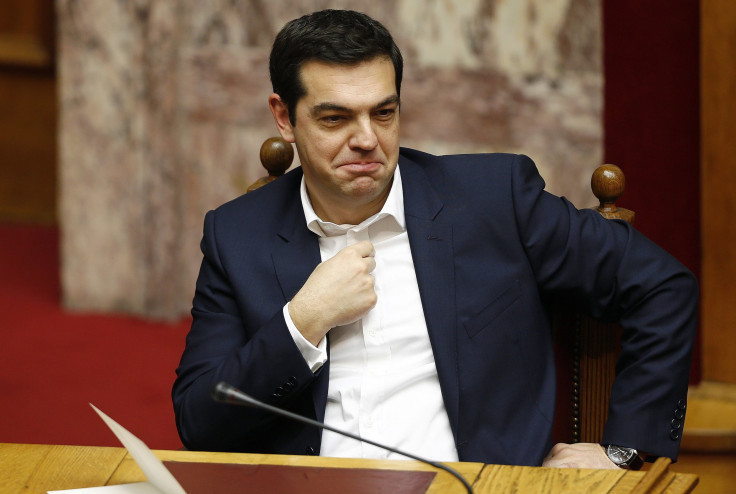Putin Invites Greece's Tsipras To Russia Amid Ukraine, Economic Talks

Russian President Vladimir Putin invited newly elected Greek Prime Minister Alexis Tsipras to visit Moscow as a gesture of good will after the two leaders discussed expanding ties between their economically deflated countries in a phone call Thursday. Greece’s controversial anti-austerity prime minister is expected to visit Russia May 9.
The leaders’ discussion focused partly on possible routes to send Russian natural gas through Greece into the rest of the European Union, the state-owned news service Sputnik reported. Russia previously sent a large proportion of its gas through Ukraine to Europe, but the conflict between the Ukrainian government and Russian-backed rebels has put that arrangement on hold.
Russia wants to build a new gas route through Turkey that would carry 50 billion cubic meters of fuel to Europe every year. Russian and Turkish officials are reportedly working out the technical aspects of the ambitious project, which would see gas pumped between the countries under the Black Sea. The gas could then potentially be pumped through Greece.
“The Russian president and the prime minister emphasized the need for substantial improvement of the cooperation between Greece and Russia -- countries with deep and historic ties -- especially in the sectors of economy, energy, tourism, culture and transport,” Tsipras’ office said in a statement Thursday, Reuters reported.
Tsipras, who came to power through his anti-austerity Syriza party’s comfortable victory in snap elections Jan. 25, promised voters he would restructure Greece’s sovereign debt with the European Central Bank, European Commission and International Monetary Fund, which have forced Greeks to live under crippling economic measures in recent years. His defiant promises angered the EU’s core countries, including Germany, where many of Greece’s loans are financed.
Tsipras further rocked the boat when he said just days after being elected prime minister that he didn’t support expanding EU sanctions on Russia. Greece could have derailed those sanctions with its veto power within the EU, but Tsipras softened his view, and Greece went along with the rest of member states to vote in favor of new sanctions last week.
© Copyright IBTimes 2024. All rights reserved.






















